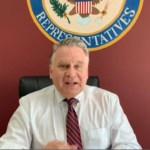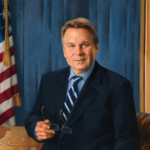The world deserves a better, totally transparent and accountable, WHO

By Chris Smith
Seventy-two years ago, this week—on April 7, 1948—the World Health Organization (WHO) was founded to organize global responses to infectious disease pandemics that respect no national boundaries.
Its effectiveness depends heavily on the good will of its member states, and the competence and trustworthiness of its leadership.
The coronavirus pandemic revealed China’s malign influence on the leadership of WHO, and a glaring accountability and transparency deficit at WHO centered around Director-General Tedros Adhanom Ghebreyesus.
Tedros dutifully echoed Chinese talking points on person-to-person transmission of the coronavirus while ignoring Taiwan’s contrary evidence, whom the WHO ostracized because of China.
Effectiveness
This isn’t the first time WHO has minimalized a major infectious disease emergency due to political pressure. In 2014, WHO dragged its feet for months before declaring the Ebola outbreak an emergency due to pressure from African governments fearingeconomic fallout. In March 2014, Doctors Without Borders described the international response to Ebola as “non-existent,” while WHO waited until August 2014, long after the epidemic was out of control, to make the call. When the bill came due for that blunder, more than 11,000 were dead.
When the deadly coronavirus broke out in Wuhan, China’s first response was a campaign of human rights abuses suppressingtruth-telling. China then leveraged itsinfluence at WHO to minimize the damage to China’s image globally.
Rather than listen to courageous physicians like Li Wenliang, whom China censored, smeared and threatened with arrest for truth-telling,WHO praised China for “openness to sharing information with WHO and other countries.”
China lied toWHO, while WHO pushed China’s false narrative about the disease—saying it was not very communicable and well under control in China, and therefore there was no need for travel bans. According to a recent study, however, China’s lack of transparency and WHO’s reliance on China’s disclosures likely caused a 20 fold increase in cases worldwide.
Transparency
If we want to restore the effectiveness ofWHO, first we must promote transparency. The failure of WHO—especially Director-General Tedros—to demand that China permit access to all information in the early weeks of the coronavirus pandemic requires serious scrutiny.
There is little likelihood that WHO or UN mechanisms such as the Office of Internal Oversight Services will conduct meaningful investigations without pressure.
Donor countries must demand that WHO produce its files – including its correspondence with Chinese officials – to an independent auditing unit. Donor pressure on the Global Fund to Fight AIDS, Tuberculosis and Malaria following discovery of corruption in 2011 helped turn that agency around – including by replacing its head, thereby restoring trust in the Global Fund’s ability to combat diseaseeffectively.
Accountability
Following WHO’s bungling of 2014 Ebola outbreak, there should have been a thorough commitment to reform. At the last election for Director-General in 2016, however, the reform candidate that the UK proffered lost after lobbying by China on behalf of Tedros.
At the time of the election, there were credible allegations that Tedros suppressed information about cholera outbreaks in Ethiopia for political reasons, downplaying the disease as “acute watery diarrhea.”
Such politicized decision-making is consistent with someone who for decades has been a highly ideological actor. Tedros was not only Ethiopia’s health minister, but also a member of the Politburo in a government whose roots were Marxist with close ties to China.
Indeed, Tedros’ WHO tenure is marked by placing politics over health. A month after meeting with Russian President Vladimir Putin, Tedrosremoved Dr. Mario Raviglione, the 25-year veteran and well-regarded head of WHO’s Tuberculosis Program—indeed, someone I had worked with as past chairman of the House Foreign Affairs Global Health Subcommittee—and replaced him with a Russian official.
If there is no accountability for such gross mismanagement, promoting public health by WHO becomes a secondary avocation to burnishing China’s global image.
To that end, donors must apply pressure akin to that used to promote reform at the Global Fund.
As the prime author of numerous global health and human rights laws including the reauthorization of the Presidents Emergency Plan for Aids Relief (PEPFAR) I recognize and respect the importance of WHO, but believe systemic reform is absolutely necessary.
Moreover we, and other donor nations, can leverage funding to demand transparency and accountability, and check the rogue influence of China.
When the World Intellectual Property Organization (WIPO) cracked down on whistleblowers who uncovered corruption and illicit transfers, the United States withheld 15 percent of its assessed contribution to insist that WIPO adopt state-of-the-art whistleblower protections and implement reforms.
Our annual WHO assessment exceeds $100 million dollars—voluntary contributions responding various crises often push our assistance beyond half a billion dollars—and we can leverage funding to demand reform, particularly if we work with donor nations other than China.
Such a diplomatically-coordinated approach met with recent success when the US and its allies checked Chinese attempts to choose the next head of WIPO.
As the COVID-19 crisis underscores, China’s influence at WHO has cost lives.
The world deserves a better, totally transparent and accountable WHO—and urgently needs it now.
Chris Smith is a Republican congressman from New Jersey’s 4th Congressional District and a member of the House Foreign Affairs Committee.










